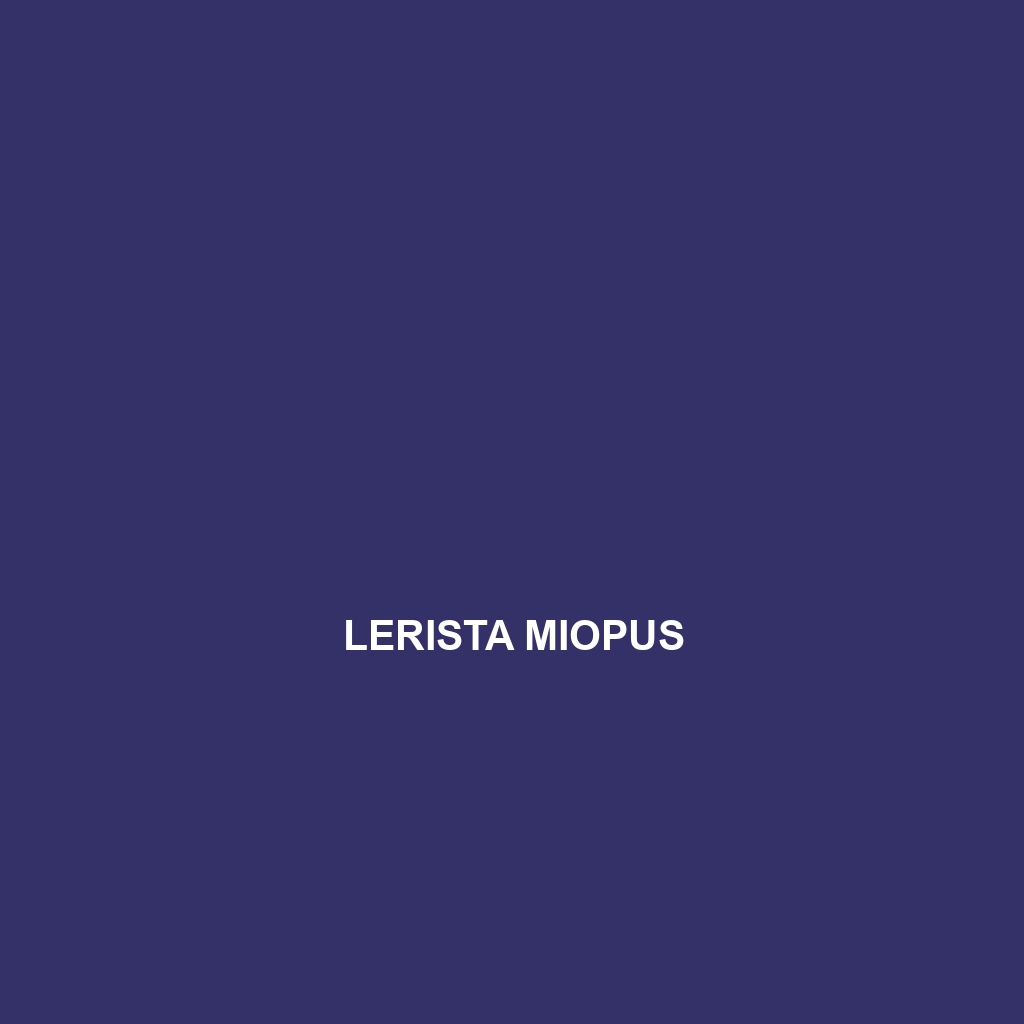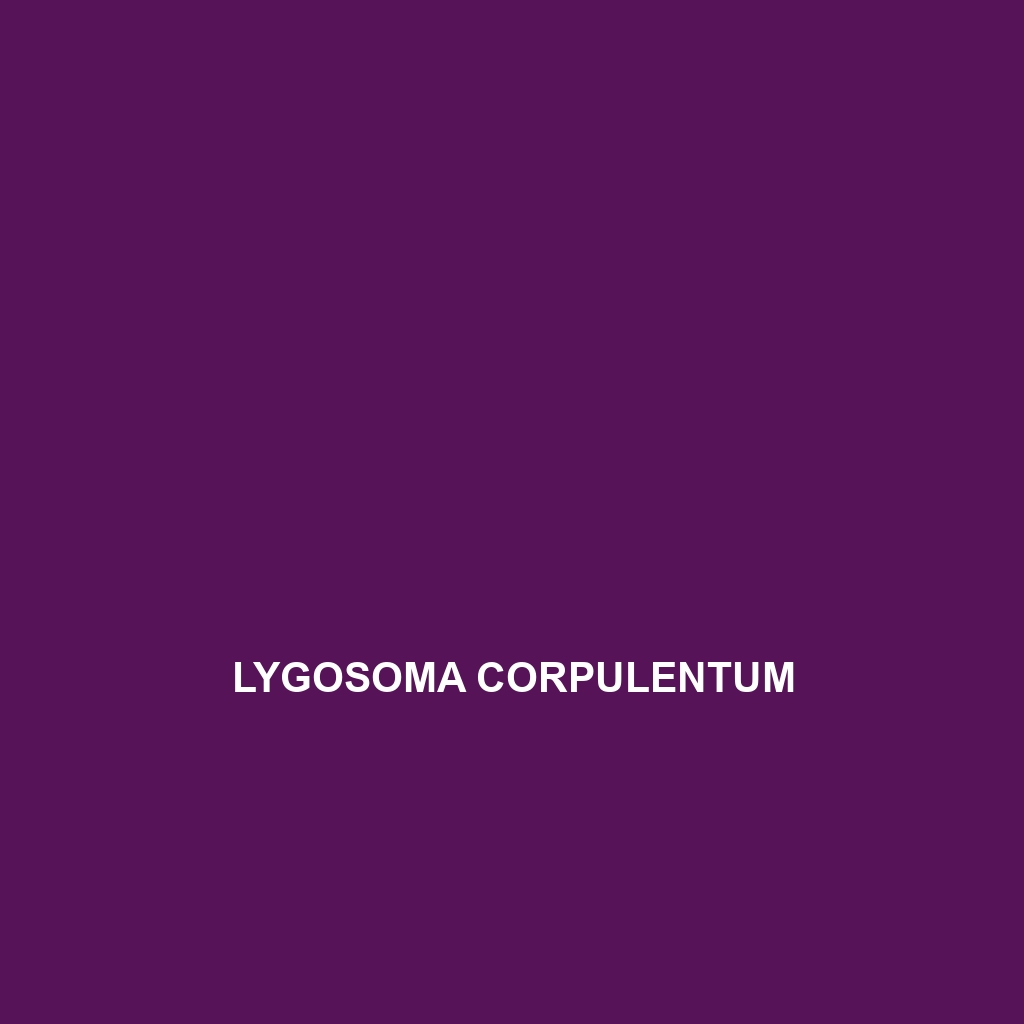-

Lerista walkeri
Discover the intriguing Lerista walkeri, a small, slender lizard native to Australia’s temperate forests and coastal wetlands, known for its smooth, shiny scales and exceptional camouflage capabilities. This diurnal insectivore plays a crucial role in controlling insect populations while thriving in rich ecosystems near riverbanks and marshes.
-

Lerista vittata
The Lerista vittata, also known as the smooth skink, is an adaptable Australian lizard characterized by its elongated body, reduced limbs for burrowing, and a diet primarily consisting of insects. It thrives in diverse habitats, from temperate forests to savannas, playing a crucial role in controlling insect populations within its ecosystem.
-

Lerista vanderduysi
Lerista vanderduysi, commonly found in Australia’s coastal regions, is a burrowing lizard that grows to 15-25 cm, exhibiting a streamlined body and smooth, shiny scales. This insectivorous species thrives in warm, sandy habitats and plays a vital role in regulating insect populations while serving as prey for larger predators.
-

Lerista parameles
Lerista parameles, a fascinating insectivorous lizard found in Australia’s temperate forests and savannas, features a smooth, elongated body with excellent camouflage and thrives in sandy, well-drained soils. Known for its secretive, nocturnal behavior and minimal social interactions, this species plays a crucial role in controlling insect populations while adapting well to its diverse habitat.
-

Lerista neander
Lerista neander, a small to medium-sized skink found in Australia’s temperate forests and savannas, is known for its elongated body, nocturnal behavior, and insectivorous diet. With reduced limbs and a distinctive brown-gray coloration, it effectively adapts to its sandy habitat, playing a crucial role in maintaining ecological balance.
-

Lerista miopus
Lerista miopus, commonly found in Australia’s arid eucalypt forests and scrublands, is a slender, fossorial lizard measuring 15 to 20 cm with a smooth, light brown to tan body and minimal limbs, well-adapted for burrowing and nocturnal foraging on small invertebrates.
-

Lerista kingi
Lerista kingi, commonly known as King’s Lerista, is a slender, fossorial lizard native to arid regions of Australia, characterized by a smooth, shiny scale covering and reduced limbs, which enhance its burrowing capabilities. This insectivorous species plays a crucial role in its ecosystem by controlling insect populations and contributing to soil aeration.
-

Lerista kennedyensis
Lerista kennedyensis, commonly found in the temperate forests and coastal areas of eastern Australia, is a small skink measuring 12 to 15 centimeters, characterized by its smooth, shiny scales and distinctive brown and gray coloration. As an insectivore, it plays a vital role in the ecosystem by controlling insect populations, while adapting well to its…
-

Lerista haroldi
Lerista haroldi is a slender, nocturnal lizard native to Australia’s temperate forests and sandy habitats, growing up to 15 cm long. As an insectivore, it plays a vital role in controlling insect populations while exhibiting unique adaptations for burrowing and camouflage.
-

Lerista emmotti
Lerista emmotti, commonly known as Emmott’s Lerista, is a slender, elongated lizard found in the arid regions of Australia, thriving in sandy soils of savannas and temperate forests. This insectivorous species exhibits fascinating nocturnal behavior and remarkable adaptations for survival in harsh climates, playing a vital role in its ecosystem by controlling insect populations and…
Search
Popular Posts
-
Lygosoma corpulentum
Discover the Lygosoma corpulentum, or fat skink, a robust insectivorous lizard native to Southeast Asia’s moist tropical rainforests and varying habitats. With a stocky body, impressive camouflage, and remarkable adaptability, this ovoviviparous species plays a crucial role in maintaining ecological balance.
-
Lygosoma boehmei
Lygosoma boehmei is a slender, nocturnal insectivore found in humid tropical rainforests and savannas of Southeast Asia, exhibiting a smooth, camouflaging texture and remarkable burrowing abilities. This vulnerable species plays a crucial role in its ecosystem by controlling insect populations and serving as prey for larger predators.
-
Lygosoma bampfyldei
Lygosoma bampfyldei, commonly found in tropical and subtropical regions, is a moderately sized lizard measuring 15 to 25 cm, known for its elongated body and glossy, camouflage coloration. This insectivorous species thrives in moist habitats and plays a vital role in maintaining ecological balance by controlling insect populations.
Categories
Tags
animal adaptations (924) animal behavior (5000) animal reproduction (865) behavior (920) biodiversity (7853) conservation (1670) conservation efforts (1778) conservation status (5748) diet (2104) ecological balance (2087) ecological role (1952) ecosystem (1469) ecosystem role (2901) endangered species (2514) habitat (3280) habitat conservation (1136) Habitat Destruction (1421) habitat loss (3385) herpetology (870) insectivorous reptiles (948) IUCN Red List (1971) lizard behavior (881) lizard diet (944) lizard reproduction (1101) nocturnal animals (2754) nocturnal behavior (2592) nocturnal reptiles (1061) physical characteristics (2058) predator-prey relationships (927) reproduction (2890) reptile behavior (1037) reptile conservation (1348) reptile reproduction (1069) rodent species (1325) seed dispersal (2145) Seed Disperser (979) small mammals (1168) snake behavior (952) snake diet (1061) snake reproduction (1129) tropical forests (948) Vulnerable Species (4926) wildlife (2511) wildlife conservation (5355) wildlife protection (1008)


